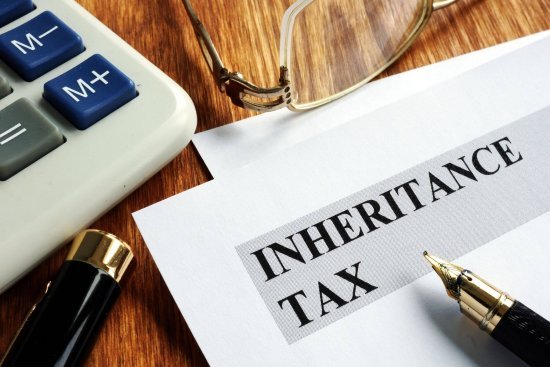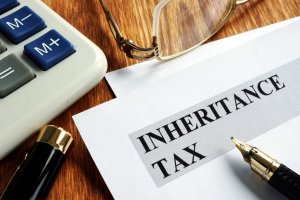Dispute Surrounding Interpretation of Will
Katie de Swarte
Table of Contents
The ‘nil rate band’ offers an incentive to testators to make their will in a tax-efficient manner, maximising the amount available to beneficiaries. However, a recent ruling illustrates how the clear wording of a testator will limit the amount available under the nil rate band (NRB) will be interpreted.
The decision also demonstrates the importance of engaging specialist solicitors in drafting an effective will. Our contentious probate litigation solicitors are highly experienced in advising will dispute clients with sensitivity and precision.
What is the nil rate band?
The residence nil rate band is a threshold below which no inheritance tax is payable on death. The current NRB is £325,000 and will not change before April 2026. If a deceased estate is valued at over £325,000, inheritance tax may be chargeable on the excess.
Individuals making a will can leave an amount equal to the NRB, or what is left of their NRB, to named beneficiaries.
Gifts made in the seven years before death and gifts and legacies left under the terms of a will may reduce the NRB available.
It is also possible to transfer any unused amount of the NRB to a surviving spouse (or civil partner) with the effect of increasing the NRB available to the survivor.
Case Overview
The deceased (D) left a will appointing a friend as one of her executors and leaving him a Somerset apartment, shares worth £218,000 and a number of personal items. Under the will, D also left her friend (the first defendant in this case) the “nil-rate sum”, i.e. the amount of the NRB (£325,000). However, a sub-clause read:
“4.1 In this clause ‘the Nil-Rate Sum’ means the largest sum of cash which could be given on the trusts of this clause without any inheritance tax becoming due in respect of the transfer of the value of my estate which I am deemed to make immediately before my death”
A dispute arose between the residuary beneficiaries – 21 named charities – and the first defendant as to how the gift of the nil-rate sum should be interpreted.
The charities argued he was entitled to nothing under the will because sub-clause 4.1 limited the amount of the NRB to what was left over after the value of all the other legacies that came within the NRB were deducted. On the facts, there was no nil-rate sum left over because the total value of legacies and the gift of the apartment exceeded the NRB limit.
That was not how the first defendant wanted the clause to be interpreted. He tried to convince the court that the will gave him a straight tax-free gift of £325,000 (the nil-rate sum), but this argument was rejected.
The court constructed the will as a whole. It ruled that had the testator intended to make an outright gift of the NRB to the first defendant, the will could simply have said so. The additional sub-clause would not have been necessary.
The contention that the wording of the sub-clause was superfluous was also rejected. The court said the wording clearly contemplated how the ‘nil rate sum’ was to be calculated.
Key takeaways
- Wills disputes often arise around how a will should be interpreted. In this case, a professional, competent lawyer drew up the will and there was no evidence justifying any inference of a mistake being made.
- The ruling also shows how a gift of the NRB can be effectively utilised in a will to reflect the will-maker’s true intentions.
- The importance of engaging specialist lawyers where there is a wills dispute cannot be underestimated.
The case is Royal Commonwealth Society for the Blind v Beasant and Davies [2021] EWHC 2315 (Ch)
Katie de Swarte is an associate solicitor who specialises in contested claims. Katie can advise you on whether you can bring such a claim based on the facts of your circumstances and can assist in defending such a claim. Katie is featured in the Legal 500 as a recommended solicitor in London.
Please call or complete an online enquiry form to speak with Katie.
Share this article
Contact
Contact us today
For a free initial conversation call 020 7485 8811
Email us Send us an email and we’ll get back to you
Katie de Swarte and Elspeth Neilson have both instructed me recently, and both seemed to me to be able to build excellent relationships with their clients and to run their practices very efficiently
Katie de Swarte is hardworking and has great empathy for her clients
More Insights about Contentious ProbateVIEW ALL
- 9.6.2023
Will Dispute Case Law
New Births And New Relationships? Review Your Will To Avoid A Dispute You’d imagine a wealthy businessman with assets...
Read more - 9.6.2023
Proprietary Estoppel Case Law
On A Lick And A Promise? The First Hurdle In Proprietary Estoppel Claims Solicitors are increasingly instructed by clients who...
Read more - 25.10.2021
Inheritance Claims CFA Success Fee Judgment
The Court of Appeal upholds the recoverability of CFA success fees in 1975 Act claims. An individual who claims reasonable provision...
Read more - 20.10.2021
Dispute Surrounding Interpretation of Will
The ‘nil rate band’ offers an incentive to testators to make their will in a tax-efficient manner, maximising the amount...
Read more - 20.10.2021
Handwriting Expert Witness Concludes Will Forgery
It’s not unheard of for an individual to forge someone’s will with the aim of securing an inheritance....
Read more





